- Home
- JoAnn Ross
Castaway Cove (2013) Page 7
Castaway Cove (2013) Read online
Page 7
Although Annie enjoyed the dinner, by the time she got home to her dark house on Castaway Cove, which she’d painted a cheerful sunshine yellow the first month she’d moved in, a tinge of the all-too-familiar blues had settled over her shoulders.
She’d been telling the truth when she said she wasn’t ready to jump back into the dating pool. Partly because she couldn’t see how she could fit in the time for a relationship between all of her professional and volunteer commitments. And partly because one of the problems with small towns was that the pool of single, available men was limited. Sedona might have gone out with the only vampire in Shelter Bay, but none of the men who’d hit on Annie since her arrival had her wanting to let them into her life.
Nor, she’d discovered, was she the kind of woman to settle for booty calls or friends with benefits.
After being abandoned shortly after birth in an anonymous drive-by dumping at a Eugene hospital, she’d spent the first eighteen years of her life in transient family relationships, and although she knew that many would think her hopelessly old-fashioned, what she wanted was the kind of happily-ever-after marriage that Charlie had shared with his beloved Annie. That Sofia De Luca, another friend of Adèle’s, who ran Lavender Hill Farm, had reportedly shared with her husband. And that Adèle herself and her husband, Bernard, continued to share.
“Dream on,” she murmured, as she scooped up the cat who’d jumped off the couch, not so much to greet her as to allow itself to be petted.
Pirate, named for his black eye patch and the fact that he’d supposedly been found feral on this very cove where Annie’s house was located, where seamen from ships reportedly taken by Sir Francis Drake had waded ashore, personified feline independence. Which was one of the things she loved about him.
Dogs admittedly had their appeal, including unqualified love for their owners, but with some cats, like Pirate, you had to work to gain their respect. And affection.
She had a good life. Correction: a great life. Friends, a business she loved, volunteer work that made her feel as if she was contributing to her adopted town, and an oversized cat who occasionally would even deign to purr his approval.
But that didn’t mean that sometimes she wasn’t lonely. And more often, with so many of her friends settling down, more than a little wistful that she might never achieve the family she’d spent her entire childhood and teenage years dreaming of.
Although she’d fallen in love with the Victorian four-bedroom, two-bath cottage the moment she’d seen it, it was admittedly more space than one person—and one cranky cat—needed.
She’d turned one of the extra bedrooms into a craft room, but when she’d first seen the dream nursery Kara and Sax Douchett had created for their newborn, she couldn’t deny having felt a momentary, unwanted twinge of envy. As honestly happy as she was for her friend, that didn’t stop Annie from occasionally imagining those empty rooms filled with her own children. Playing, laughing, loving.
Bygones.
As much as she enjoyed her independence and the life she’d created for herself here in Shelter Bay, as she poured a glass of wine, lit a fire, and settled down to try to find something on her DVR, it crossed Annie’s mind that sometimes Saturday nights really sucked.
10
Mac flat-out hated Saturday nights. The only two things worse, he decided, as he pulled into the KBAY radio station parking lot, were Valentine’s Day and New Year’s Eve, when the bar to have the best time ever was raised so high, you’d need a pole to vault over it.
Apparently his was a minority opinion, because everyone at Bon Temps, where he’d stopped in for a late supper after putting Emma to bed, had seemed to be having themselves a high old time. Sax Douchett had brought in an Alabama cover band from Corvallis for Country Night at the restaurant and the small dance floor had been crowded. One guy and his date had stood in the center, ignoring all the couples doing the boot-scootin’ boogie around them as they’d slowly swayed, lost in their own lovey-dovey world.
And although he would fling himself off the Shelter Bay bridge before admitting it, the sight of the guy’s hands on the woman’s jeans-clad butt had sent a sharp, hot spike of lust through him, not unlike what he’d felt when he’d run into that woman at Still Waters earlier.
When he’d muttered to Sax that they ought to get a room, the former SEAL had laughed, put a bowl of fiery hot nuts on the bar in front of him and suggested that he just needed to get laid
Easier said than done. But he wasn’t interested in going back to one-night hookups, especially now that he was a single father. The last thing Emma needed was for a parade of strange women to traipse through his life.
Besides, if he was to have sex, it’d have to be nooners, because his nights were no longer free. Although he’d originally taken the night gig, leaving Emma with his father, so he could be home during the day with her, Mac had discovered that whenever he was alone in the dark, his ghosts visited, dragging with them a litany of negative choices, failed promises, and what-ifs.
At least when he was on the air, he was connecting with other people—night-shift workers, long-haul truckers, and lonely people who, like him, were struggling to avoid that dark ride on the night train of regrets.
“Next up is Wade Bowen’s ‘Saturday Night,’ a definite tears-in-your-beer song. And I’m asking the same thing Wade is: Why is everybody so in love with Saturday night?
“If you’re not doing anything wild and fun—and hey, if you are, you’re probably not sitting around listening to me spin tunes—why don’t you pick up the phone, dial 555-9806, and let me know how you feel. And FYI, I don’t exactly have the biggest staff in the world, so we’re recording conversations for playback after the songs.”
At the larger stations where Mac had worked, he’d have a producer fielding the calls. The best ones had an internal red-alert warning system that filtered out long-winded callers, foul-mouthed ones, and BS artists, like the guy who’d called last week to say he had photographic proof that Bigfoot was living up at Rainbow Lake outside of town. But KBAY was a small FM start-up station that just broadcast up the coast, which cut down on advertising revenue, which also cut down on staffing.
During the day, when the ad sales staff of two were working, and secretaries were getting coffee for the people the day producers would round up for interviews, and those producers were handling the extra calls that would come in during what was laughingly referred to as “Drive Time,” the station almost seemed to be bustling.
But from midnight to four a.m., there was just Mac, his microphone, and his small but loyal night owl audience, which wasn’t large enough to allow for the cost of a producer.
In some ways, working at KBAY was like his first job in Alturas. He’d worked the board himself back then, and although computers had changed a bit over the years, this wasn’t that different. Besides, it kept him from having to spend the shift interacting with anyone. Since he’d gotten out of the hospital, he’d kept pretty much to himself, with the exception of Emma, his father, and his grandfather. Having already done the fame thing, and realizing what it had cost him, he avoided personal appearances. Nor did he allow the station to put up posters for his show, which, he realized, made him a bit of a mystery man in a town where everyone seemed to know everything about everyone else’s lives.
He did eat frequently at Bon Temps, and so he occasionally made small talk with Sax, but when it came to his time in Afghanistan, Sax didn’t ask and Mac didn’t tell.
Besides, the former SEAL was so besotted with his baby daughter, always showing off the newest photos on his phone screen and going on and on about whatever new milestone she’d soared over that day, Mac wasn’t really required to say more than “Wow,” or “That’s cool.” Or “Yeah, she is beautiful and yep, she does look exactly like her mother.” All of which were true.
The song went three minutes and twenty-nine seconds. Add in another thirty seconds for a commercial for the Crab Shack, and Mac had about four minutes to rec
ord a call he could play after going back on the air.
The light on his console lit up before Bowen’s song got to the bridge.
“So, who’ve we got?” Mac asked, picking up. “And hey, turn off your radio, okay? Because you won’t be able to hear because of the feedback . . . Great.”
“I’m Travis, from Depoe Bay, and I’m KBAY,” the voice said, stating the tagline that the station owner had wanted to make sure all the deejays got people to say.
“Hey, Travis. So, how do you feel about Saturday nights?”
“They suck.”
Well, that was succinct. As the dreaded dead air dropped like a rock, Mac tried to lure the guy into expanding on the story.
“Want to tell us why?”
“Yeah. I was cutting timber up Astoria way when the sawmill decided they’d had enough for the day and ours was the last truckload. Which meant I got to go home about two hours earlier than I’d told my wife.”
Mac figured he could see this one coming, but since they weren’t live, he decided to go with it a little bit longer. “I guess you went straight home?”
“Yeah. She’d been ragging on me for not spending enough time with her, but, hey, when you’ve got a contract to cut timber, it’s not like you can blow the job off just to be home in time for dinner with the old lady every damn night.”
Mac might not have been the best husband on the planet, but even he knew that referring to your wife as “the old lady” wouldn’t exactly win points.
“She’d been making more and more noise about wondering if she wanted to stay married, so I decided maybe an opportunity had dropped in my lap. I stopped by Fred Meyer and picked up some flowers, a box of wine, and those Belgian chocolates they sell there. My wife really liked the coffee ones.”
“Can’t imagine any woman not being happy to receive all that.”
“Yeah. That’s what I thought. Then, okay, I figured I’d get lucky and get some makeup sex, because she’d been really hot under the collar when I left the house.”
There were getting into dangerous FCC territory, but Mac decided that the guy hadn’t gone too far. Yet.
“Wanna guess what happened?” Travis from Depoe Bay asked.
“She was out with some girlfriends when you got home?” Mac hoped that was the answer.
“Oh, she was home, all right. But not with a girlfriend. I caught her in bed with a guy I’d known since high school. A guy who was supposed to be my effing best friend.”
As Travis launched into a tirade that might’ve actually made a sailor blush, Mac hung up.
Then said, “Oops. Seems we lost the connection with Travis. But I think we can all understand why he might not be a fan of Saturday night.”
There were another two minutes. Rather than risk the guy calling in again to get back on the air, Mac picked up on the call that had been on hold.
“Hey. Who are you and where are you calling from?”
There was a slight hesitation. Mac was about to risk Travis being back on line three, when a female voice said, “I’m, uh, Sandy. And I’m from Shelter Bay. Oh, and I’m KBAY.”
She sounded nervous. Which wasn’t that surprising. She wouldn’t be the first person to sound flustered calling in to a radio program.
“Hey, Sandy. So, what do you do in Shelter Bay?”
“A little of this. A little of that.”
“Ah. A lady with secrets.”
“Not exactly secrets . . . I had dinner with a friend at Bon Temps earlier.”
“Hey, me, too. What did you have?”
“Crab jambalaya.”
“I had the gumbo and sweet potato fries. Then you came home and turned on the radio?”
Either she’d been out with a girlfriend or some guy had struck out. He also wondered if she’d been eating while he’d been in the restaurant. Because her voice sounded vaguely familiar. Maybe she’d been sitting at a nearby table and he’d caught a drift of her conversation?
There was a slight pause, which the clock in his head told Mac lasted three seconds. Another one and he would’ve jumped in to fill the gap.
“I sat alone in the dark for a while, thinking about mistakes,” she said quietly. “Then I turned on the radio.”
Part of Mac liked knowing that he was doing his job so well that someone had found his show to be a balm to what sounded like loneliness. And couldn’t he identify with the regret he heard in her voice?
Hell, maybe that’s what had his numbers soaring. Maybe he wasn’t the only one who sat alone in the dark thinking of all the what-ifs strewn alongside the wrong roads he’d taken.
The clocks were ticking down. The one on the production board, the one on the wall, along with the one in his head.
“We’ve got to go to the network for a news segment,” he said. “Would you mind staying on the line, Sandy? Then you can give your view on Saturday night.”
Another hesitation. He could practically feel her arguing with herself over the phone line. Which perversely made him want to talk to her even more.
“All right,” she said finally. Her laugh was soft and more than a little sad. “It’s not as if I’ve got anywhere all that exciting to go.”
“And here I thought I was Mr. Excitement,” he said, sliding back into Radio Guy mode.
He made the connection with the network feed, and then, as a story about the war in Afghanistan, which he could do without hearing, came on, Mac returned to Sandy.
“And, just so you’ll know, I’m not recording this part of our conversation for the air,” he said.
“Why?”
She didn’t sound thrilled by the personal attention.
“I don’t know.” That was the truth. The only time he ever talked to callers off the air was when they sounded as if they might prove to be a threat to themselves or others and he was trying to talk them off some ledge. “Maybe because we have something in common.”
“Oh?”
Damn. Her voice was definitely familiar. That single syllable had sent a bell ringing, but it was deep enough in his mind he couldn’t place it.
“The reason I asked the question in the first place is that I was thinking the same thing tonight,” he said. “About my own past screwups.”
“What kind of screwups?” She drew a quick breath. “I’m sorry. I shouldn’t have asked that. It’s personal. And none of my business.”
“It’s not that unusual a story.” Unfortunately. “I was a lousy husband.”
“I’m sorry.” He’d gotten good at judging people by their voices, and hers was sincere. “From your use of the past tense, I guess you’re divorced, too?”
Ah. A clue. So, the lady with the dulcet tones wasn’t married. Though if she was sitting in the dark, dwelling on regrets, she probably wasn’t any more ready for a relationship than he was.
“Yeah.”
“I’m sorry.”
“I was, too.” He paused and although there was no reason to expound on that answer, he decided to go all in. “But if I hadn’t been putting myself first for a long time, she probably wouldn’t have left me.”
The red light on his board had begun to flash. “Damn. We’re about to come off the national news in twenty seconds. Would you mind hanging on a little more?”
She paused again. He wondered if her thoughts were as evident on her face as they were over the phone. He also guessed that since he’d been in Shelter Bay eight months and this was the first time they’d talked, she wasn’t one of those people who normally called up radio stations.
“I think I’d better get to sleep,” she said. “I have a busy day tomorrow.”
“At your business.”
“Yes.”
“Which would be?”
“I’d rather not say.”
“That bad?” She had a sexy voice. Low and lush and husky. Sort of like Lauren Bacall in all those old black-and-white movies. He wondered if maybe she ran a phone sex business out of her house. Then decided she didn’t sound comfortable enough on t
he phone for that.
“No. It’s just that . . . well, I don’t know, but I think I’m more comfortable with us just talking like this.”
Mac kicked himself for opening up enough to admit he’d been a lousy husband. Which had probably cost him any chances with Sandy whatever her last name was.
“A mystery woman . . . I can handle that.” For now. “As long as you promise to call in again.”
Silence.
Then, “I just may do that.”
“I’ll be looking forward to it. Oh, and what do you think?”
“About what?”
“Saturday nights,” he reminded her.
“Oh. When I first called I was going to say I wasn’t a fan. But I guess there’s something to be said for them, after all.”
“Great. So if you can hang on just a another minute longer to share that opinion in tonight’s poll, we’re going back on the air in five . . . four . . . three . . . two . . . one second.
“We’ve got Sandy, from right here in Shelter Bay. So, Sandy, how do you vote?”
“Some Saturday nights make up for the others,” she said, making him wonder if she was talking about their off-the-air conversation.
“So that’s a yes vote?”
Another pause. “I guess it is.” She sounded surprised.
Mac watched the green light disappear off the board, only to immediately be replaced with a blinking red one as she—damn it—hung up.
“So far we’ve got one thumbs-down from Travis and an affirmative from Sandy. After Jake Owen’s “The One That Got Away,” we’ll see if we’ve got any tiebreakers out there. . . .
“This is KBAY, FM ninety-eight-point-six. And never forget, cowboys and cowgirls, friends don’t let friends listen to pop.”
While the next caller told him what was essentially a country song about his wife leaving him on a Saturday night, driving away in his truck with his chocolate Lab in the backseat, Mac registered that as a no vote and wondered if, wherever she was, Sandy was thinking about him. The same way he was thinking about her.

 Magnolia Moon
Magnolia Moon Summer on Mirror Lake
Summer on Mirror Lake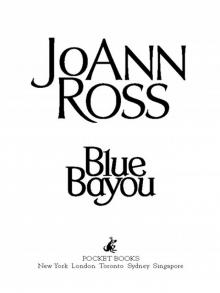 Blue Bayou
Blue Bayou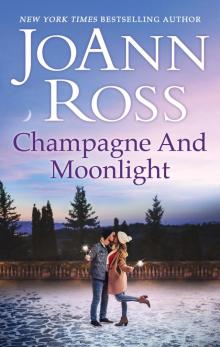 Champagne and Moonlight
Champagne and Moonlight No Regrets
No Regrets Long Road Home
Long Road Home Southern Comforts
Southern Comforts Herons Landing
Herons Landing Untamed
Untamed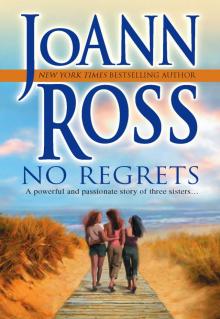 No Regrets (Mira Romance)
No Regrets (Mira Romance)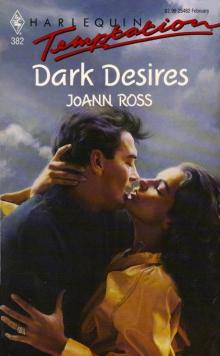 Dark Desires
Dark Desires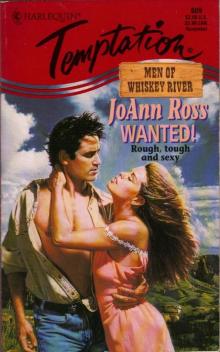 Wanted!
Wanted! River Road
River Road Midnight Runaway
Midnight Runaway The Long Way Back
The Long Way Back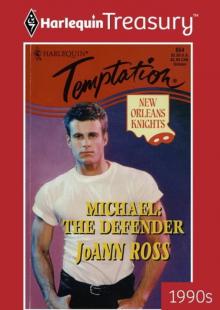 Michael: The Defender
Michael: The Defender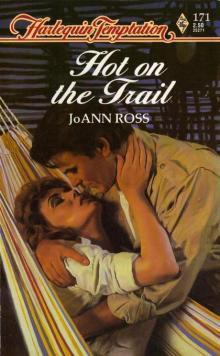 Hot on the Trail
Hot on the Trail When I'm With You
When I'm With You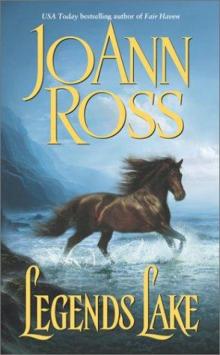 Legends Lake
Legends Lake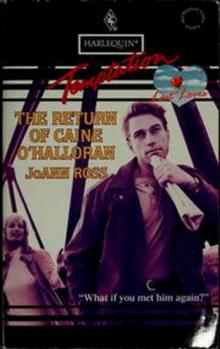 The Return of Caine O'Halloran
The Return of Caine O'Halloran Dance with a Dynasty
Dance with a Dynasty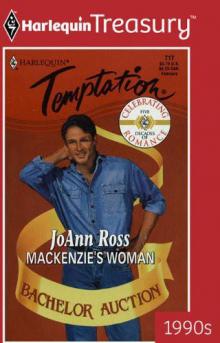 MacKenzie's Woman
MacKenzie's Woman Impulse
Impulse Sunset Point: A Shelter Bay Novel
Sunset Point: A Shelter Bay Novel You Again: A Shelter Bay novella (Shelter Bay series Book 8)
You Again: A Shelter Bay novella (Shelter Bay series Book 8)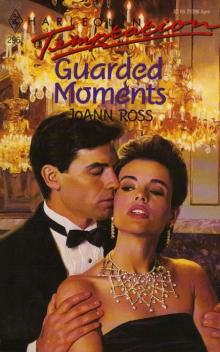 Guarded Moments
Guarded Moments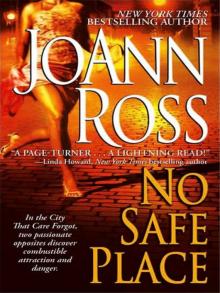 No Safe Place
No Safe Place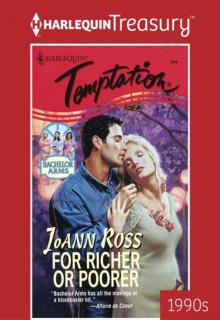 For Richer or Poorer
For Richer or Poorer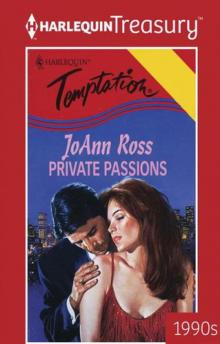 Private Passions
Private Passions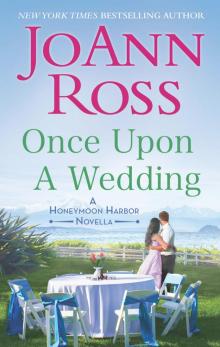 Once Upon a Wedding
Once Upon a Wedding Snowfall on Lighthouse Lane
Snowfall on Lighthouse Lane Christmas on Main Street
Christmas on Main Street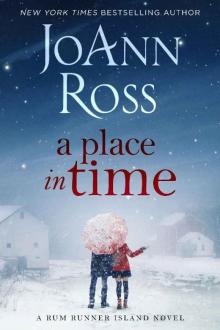 A Place in Time (Rum Runner Island Book 1)
A Place in Time (Rum Runner Island Book 1)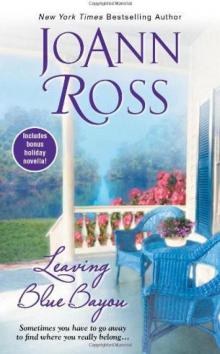 Leaving Blue Bayou
Leaving Blue Bayou The Return of Caine O'Halloran: Hard Choices
The Return of Caine O'Halloran: Hard Choices Lucky in Love
Lucky in Love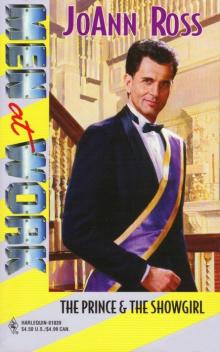 The Prince & The Showgirl
The Prince & The Showgirl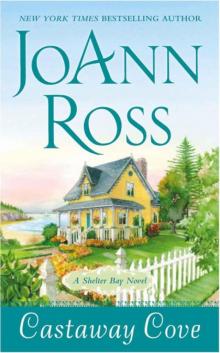 Castaway Cove
Castaway Cove A Woman's Heart
A Woman's Heart One Summer
One Summer Ambushed
Ambushed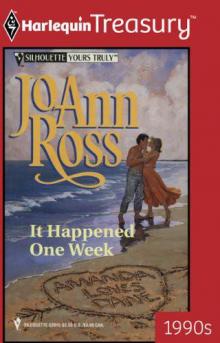 It Happened One Week
It Happened One Week Home by the Sea
Home by the Sea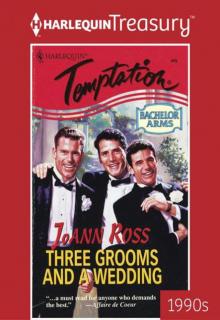 Three Grooms and a Wedding
Three Grooms and a Wedding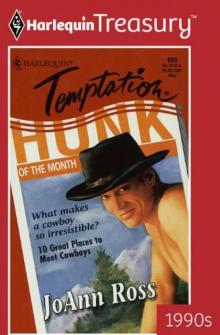 Hunk of the Month
Hunk of the Month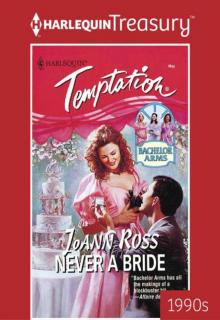 Never a Bride
Never a Bride Sun Kissed
Sun Kissed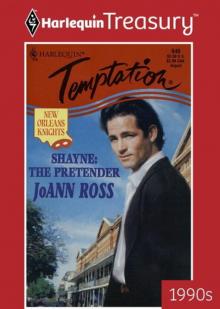 Shayne: The Pretender
Shayne: The Pretender Legacy of Lies
Legacy of Lies Far Harbor
Far Harbor Finn
Finn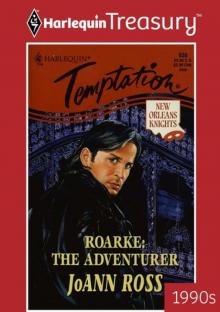 Roarke: The Adventurer
Roarke: The Adventurer I Do, I Do...For Now (Harlequin Love and Laugher)
I Do, I Do...For Now (Harlequin Love and Laugher) Briarwood Cottage
Briarwood Cottage On Lavender Lane
On Lavender Lane Sea Glass Winter
Sea Glass Winter River's Bend
River's Bend Christmas in Shelter Bay
Christmas in Shelter Bay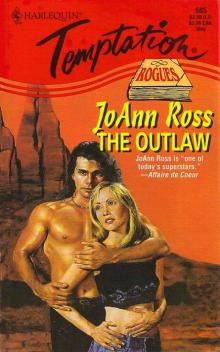 The Outlaw
The Outlaw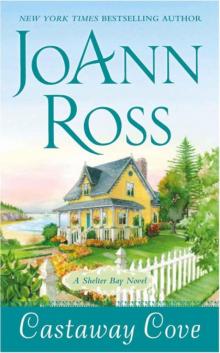 Castaway Cove (2013)
Castaway Cove (2013) Confessions
Confessions Moonshell Beach: A Shelter Bay Novel
Moonshell Beach: A Shelter Bay Novel